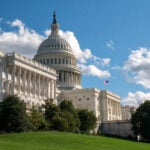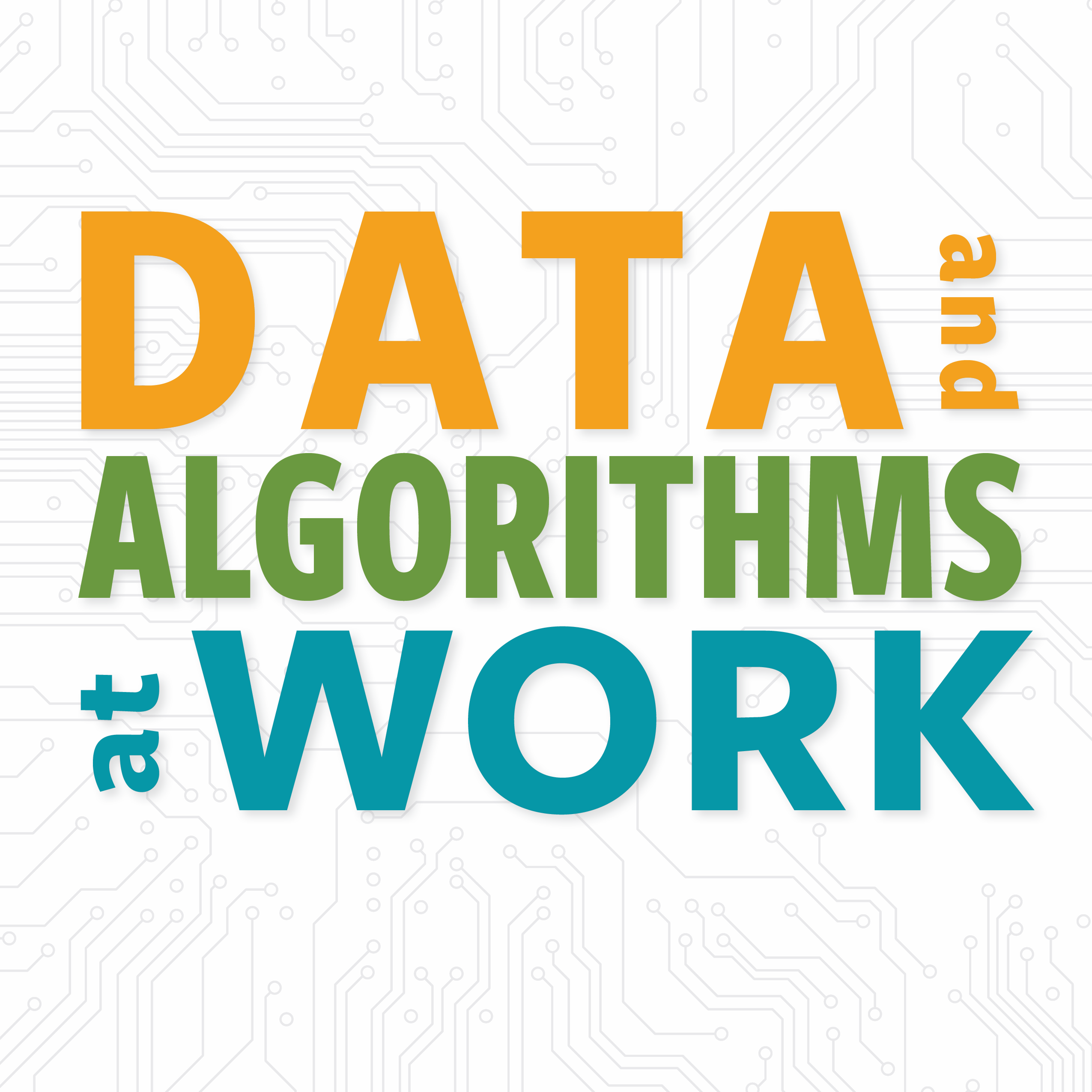The Current Landscape of Tech and Work Policy in the U.S.: A Guide to Key Laws, Bills, and Concepts
Updated September 2025. An overview of current U.S. public policy that regulates employers’ use of digital workplace technologies.
The UC Berkeley Labor Center’s Technology and Work Program provides worker organizations and policymakers with the research, policy analysis, and training they need in order to respond to rapid technological change in the workplace and ensure that AI and other digital technologies benefit rather than harm workers. We focus on low-wage industries and the workers of color, women, and immigrants who are often on the frontlines of experimentation with emerging technologies.
 |
The Current Landscape of Tech and Work Policy: A Guide to Key Concepts |
 |
Electronic Monitoring and Automated Decision Systems: Frequently Asked Questions |
 |
Negotiating Tech: An Inventory of U.S. Union Contract Provisions for the Digital Age |
 |
Data and Algorithms at Work: The Case for Worker Technology Rights |
 |
Videos and lessons from our January 2025 conference, Making Tech Work for Workers (use your scroll button for the interactive page). |
 |

November 3, 2025
Evaluating Trends and Challenges in State Regulation of Workplace Technologies

September 18, 2025
A First Look at Labor’s AI Values: An analysis of recent statements about technology by unions and other worker organizations

July 22, 2025
Negotiating Tech: An Inventory of U.S. Union Contract Provisions for the Digital Age
Updated September 2025. An overview of current U.S. public policy that regulates employers’ use of digital workplace technologies.
Our program regularly compiles policy and research updates related to technology and work. See below. New material will be added every few months.
Op-ed by Kung Feng and Mishal Khan argues that in debates about how AI could impact workers in the years to come, it is essential to pay attention to the wide range of concerns that worker organizations have about technology adoption, as well as the alternative vision they are putting forth.
AI in the workplace isn’t just automation. Workers report discrimination, intensified workloads, and even automated firing. New state policies aim to center workers, write Mishal Khan and Annette Bernhardt in this Tech Policy Press article.
A first look at labor’s vision of what the future of AI and digital technologies should look like.
It is our assessment that the current proposed regulations do not provide the protections that consumers and workers deserve under the CCPA and that the law itself clearly intended.
A searchable inventory of contract provisions from over 175 union agreements showing how collective bargaining has been used to address workplace technologies, protect worker rights, and shape technology adoption, use, and oversight.
Joint letter in response to the California Privacy Protection Agency’s May 9, 2025, request for comments on the most recent draft of proposed regulations for the California Consumer Privacy Act (CCPA).
Accessible, non-technical FAQ answering common questions about AI and other digital technologies in the workplace, how employers use them, and how workers are impacted.
Joint letter providing recommendations in response to the California Privacy Protection Agency’s request for comments on proposed regulations for the California Consumer Privacy Act (CCPA).
Workers at large businesses in California have basic rights around their worker data under the California Consumer Privacy Act, a groundbreaking data privacy law. Because of its potential value for workers and worker advocates, we explain in this toolkit the process for workers to access their data.
This post explains the the Consumer Financial Protection Bureau (CFPB)’s new guidelines that employers must follow when they use algorithmic scores or background reports generated by third parties to make employment decisions.
Prepared Testimony by Dr. Annette Bernhardt, Director, Technology and Work Program, UC Berkeley Labor Center for the Joint Informational Hearing, California State Assembly, Committee on Privacy and Consumer Protection and Committee on Labor and Employment. August 7, 2024, Sacramento, CA.
Joint letter providing input on the California Privacy Protection Agency’s current rulemaking for the California Consumer Privacy Act (CCPA), which will detail a set of important worker rights and employer responsibilities for the use of data-driven technologies in the workplace.
Prepared testimony by Annette Bernhardt, presented at “California at the Forefront: Steering AI Towards Ethical Horizons,” Joint Informational Hearing by the CA Senate Governmental Organization Committee and the Senate Budget Subcommittee on State Administration and General Government. February 21, 2024, Sacramento, CA.

November 10, 2025
An Alternative Vision for the Future of Tech and Work: A First Look at Labor’s AI Values
January 5, 2026
Can the Fight Against AI Revitalize the US Labor Movement?

October 20, 2025
Statehouse AI Job-Loss Solutions Range From Punitive to Positive

June 26, 2025
In The Age Of ChatGPT, Workers Want A Say On AI In The Workplace
May 14, 2025
California Workers—What You Need to Know About Your Data Rights
Many workers, especially tech workers, are not in unions. Lisa Kresge detailed how non-unionized workers are often kept in the dark about the technology their employer is using or rolling out, or may not even know what technologies are being deployed behind the scenes.
“I’m hopeful about the opportunity for technology to lift up some of the issues that have been under way in our economy for decades … in terms of how workers are treated and how we are distributing the rewards of productivity,” said Lisa Kresge.
This year I will be watching for progress in legislation to establish guardrails around electronic monitoring and algorithmic management, addressing harms such as automated firing, discrimination, invasive surveillance and profiling of union organizers.
“The topic of AI and other digital technologies are showing up in contract fights and organizing campaigns, increasingly in public policy debates across a variety of sectors,” Lisa Kresge, senior researcher at UC Berkeley’s Labor Center, told NPQ.
With Congress largely absent from the debate, 2025 has become a “watershed moment” for state-level labor tech policy, according to an analysis by the UC Berkeley Labor Center. More than 350 bills now target harms ranging from automated firing to invasive surveillance and AI-driven deskilling of workers.

Annette Bernhardt
Director, Technology and Work Program

Mishal Khan
Senior Researcher

Lisa Kresge
Senior Researcher

Kung Feng
Senior Researcher